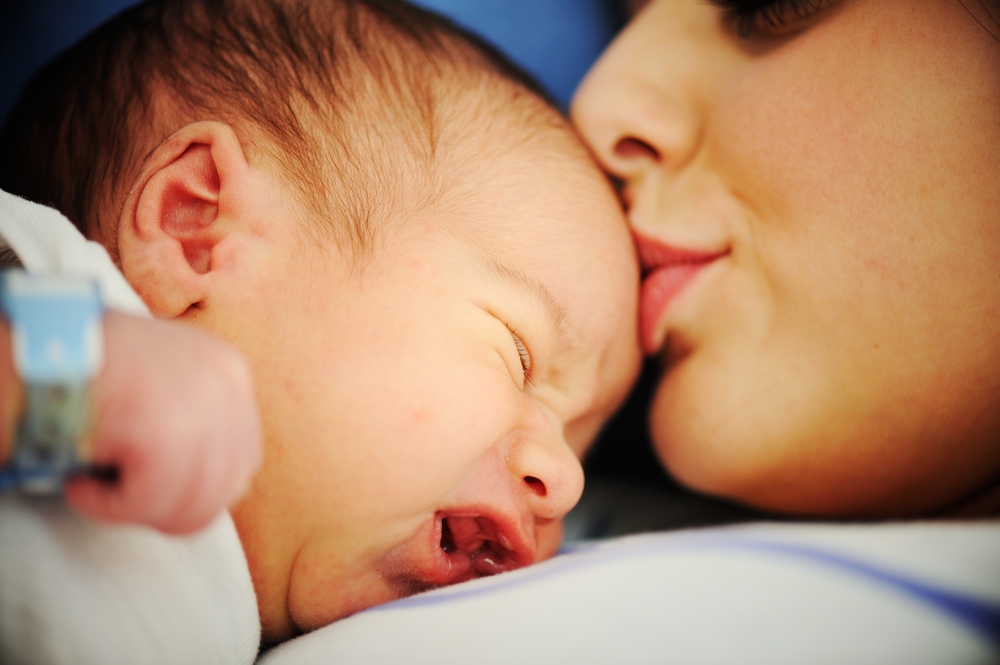Common Newborn Problems at Pediatric Clinic DRHC Dubai
Common Newborn Problems - 9 months of pregnancy, pain of labor and delivery, all of that passed, and now your baby is in your hands. It’s a big responsibility; your happiness is mixed with a little bit of fear. How will you deal with that? These tips can help you feel more confident about caring for a newborn.
Handling a Newborn
- Wash your hands or use sanitizer before handling your baby.
- Do not shake your newborn.
- Support your baby’s head and neck when you carry him.
Baby Bath
Before your baby's umbilical cord stump falls off between 10 days and 3 weeks after birth, it's best to sponge bathe him to avoid getting the cord stump wet. Once the cord stump has fallen off, your baby is ready for a real bath in the baby bathtub. We will raise your hopes and gain your trust
Changing the Diaper
- Clean the diaper area after removing the diaper with baby wipes and apply diaper cream to prevent diaper rash. Change the diaper after every poo and after every nap and feed.
- The baby’s first poo is thick and greenish; it’s called meconium. It happens in the first 48 hours. If it doesn’t happen, you should ask your doctor.
- A breastfeeding baby has 1-6 bowel movements. The poo is yellow and a little loose. That is normal and not diarrhea.
- A formula-fed baby has bowel movements every 1-2 days, and that is normal.
- When your baby has changed the frequency and texture of stool, ask your doctor.
- If your baby wets his diaper frequently, that means he is feeding well and receiving enough milk.
Breastfeeding
- Your breast milk will come in a few days after delivery. The first days after delivery, the breast produces colostrum. This thick yellowish substance is full of protein and antibodies that increase your baby’s immunity.
- Feed your hungry newborn on demand whenever he wants to eat.
- Newborns usually need 10-12 feeds/ 24 hours.
- When establishing your milk supply, feed your baby every 3 hours.
Signs that your baby is feeding well:
- You feel your breast is soft after feeding
- Sleeps 2-3 hours after feeding
- Wet his diaper frequently
- He gains weight
Newborn Umbilical Cord Care
When you change the baby’s nappy, pay special attention to the area at the base of the cord. Wipe it gently and try to allow air to reach the cord stump.
Let the cord stump fall on its own. If any erythema, pus, or bleeding comes from this area, ask your doctor immediately.
How Much should a Newborn sleep?
- NEWBORN: 16-20 hours per day. The baby will wake up every 3 hours for a feeding.
- 6 WEEKS: 15-16 hours
- 6 MONTHS: 11 hours + 2 naps
- 1 YEAR: 10-11 hours + 2 naps
Jaundice
Most newborns have mild jaundice because their liver is still maturing. Often appears in 2-4 days old and disappears by 2 weeks of age.
When should you ask for medical attention?
- If jaundice appears on the first day of life, especially if you have Type “O” or a negative blood group
- If jaundice is severe and the color appears on the abdomen and legs
- If jaundice doesn’t disappear at 2 weeks of age
- If the baby looks ill, is not active, and is not feeding well
How do you know if Your Baby Has Colic?
- Any healthy baby who feeds well and cries for more than 3 hours a day, 3 times per week for more than 3 weeks. It starts at 2 weeks of age and goes away on its own around 4 months of age.
- The causes are gas, a moody baby, hormone that causes stomach pain, and oversensitivity to light and noise.
- To reduce it, help your baby swallow less air by soothing the baby with sound and motion, walking or rocking, and using gas drops. Sometimes it will benefit, but if not, ask your Doctor.
Prevention of Sudden Infant Death Syndrome
- Back to sleep
- Keep the crib as bare as possible and use a firm mattress
- Don’t overheat the baby
- Have the baby sleep in the parents' room until age 1
- Breastfeed your baby if possible
When should you ask for Medical Attention?
- Your baby is not sucking or feeding well
- He has a fever
- Continuous vomiting
- Crying for a long period, and you can’t calm the baby
- Has diarrhea or constipation
- Jaundice that appears on the first day of life or after 2 weeks of age
- Looks pale or mottled, or has cyanosis
- Has a fast respiratory rate
- Bleeding, redness, and pus from the umbilical cord
Regular Pediatric Clinic Visit
When the baby is discharged from the hospital, he will usually receive Vitamin K for preventing bleeding and HEPA B and TB VACCINE. The baby should have a detailed examination by a Pediatrician within 24 to 48 hours after discharge to detect any abnormalities and Jaundice.
Regular visits after that are very important, even if the baby appears well within the first year of age, to evaluate the growth and development and to receive the vaccination.
.png?width=281&height=59&name=bookanappointment%20(1).png)
Dubai Pediatric Clinic at Dr. Rami Hamed Center provides one of the leading pediatricians in Dubai. Please call +97142798200 to book an appointment today with us!




.png?width=281&height=59&name=bookanappointment%20(1).png)
.webp?width=1080&height=1080&name=Doctor%20background%20For%20Website%20Dr.%20Manaal%2002%20(1).webp)



